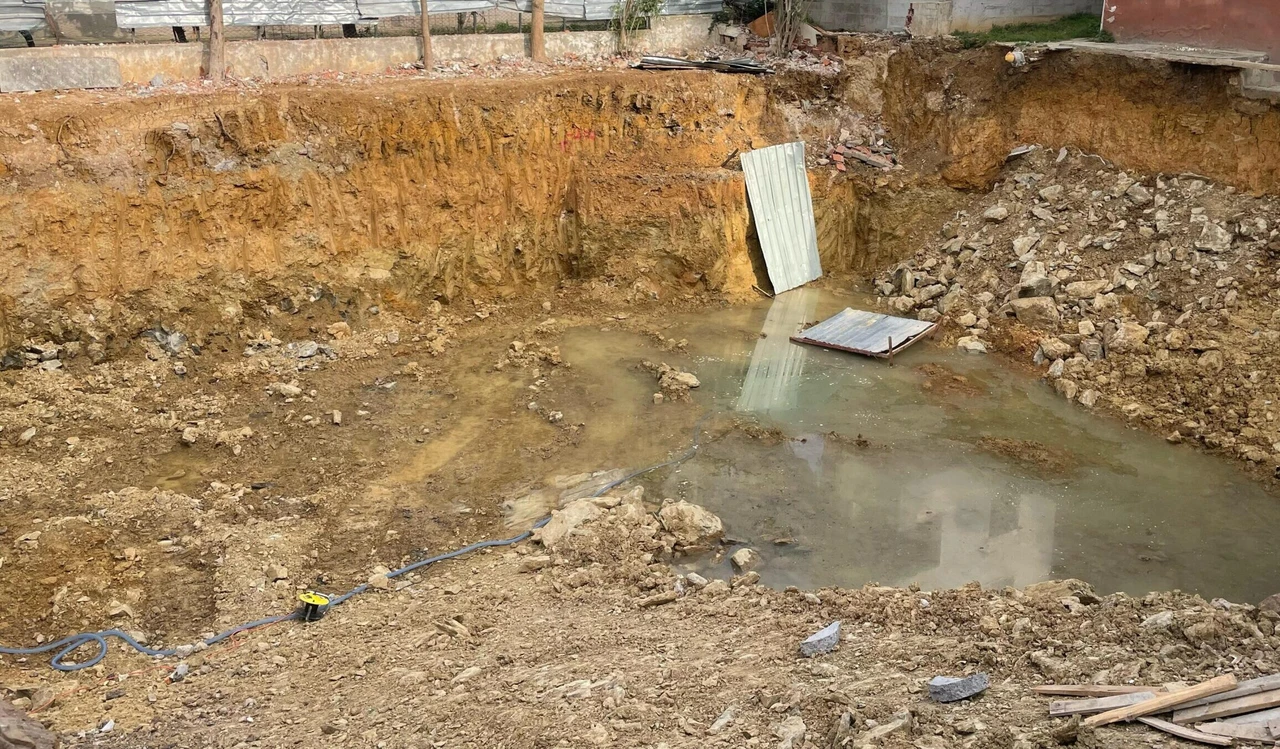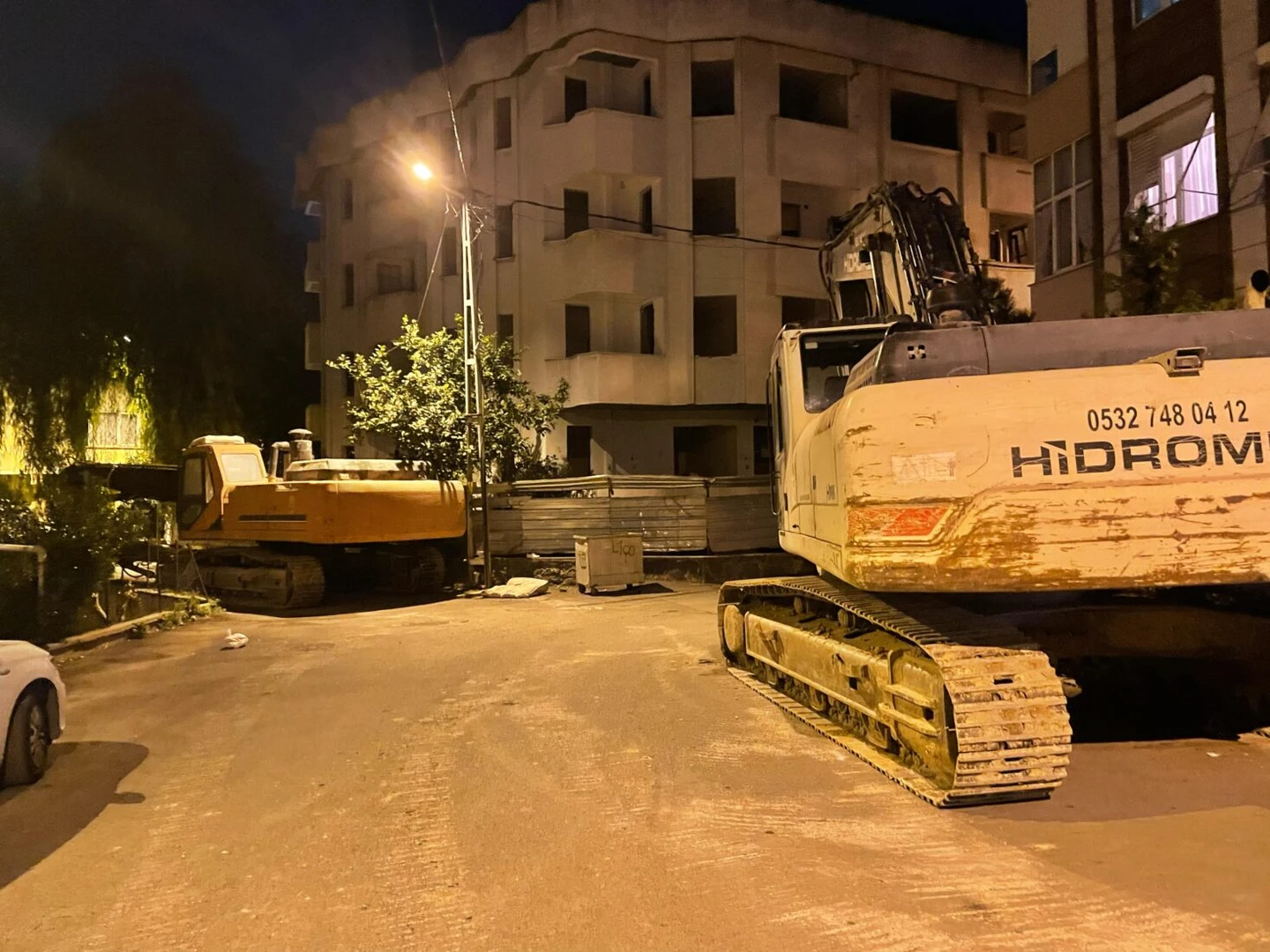Asbestos concerns erupt during urban transformation on Istanbul’s Bagdat Avenue
 After the foundation excavation for a demolished building in Istanbul, Türkiye, water from the sewage connection is seen flooding the foundation, with no preventive measures taken. (Photo via Koray Erdogan/Türkiye Today)
After the foundation excavation for a demolished building in Istanbul, Türkiye, water from the sewage connection is seen flooding the foundation, with no preventive measures taken. (Photo via Koray Erdogan/Türkiye Today)
Residents of Istanbul’s Kadikoy district, particularly around the well-known Bagdat Avenue, are raising alarms over health risks they claim are linked to dust and potential asbestos exposure during ongoing urban transformation projects.
While citizens assert that contractors are bypassing proper asbestos removal by purchasing clearance certificates, municipal officials deny these claims, insisting procedures are being followed.
‘Contractors pay for clean certificates without asbestos removal’
In an interview with T24, Bagdat Avenue resident Inci Canakci said the neighborhood has become “unlivable” due to the dust and noise pollution from constant demolitions. “Thousands of buildings have been demolished in the past decade, but there’s no serious control or sanctions from the municipality. Asbestos removal is expensive, so contractors just pay to get a clean certificate and demolish buildings without removing it properly,” Canakci claimed.
She also emphasized the health impact: “I was diagnosed with asthma last year. My doctor said it might progress into something worse because of the air I’m breathing. Even inhaling a single asbestos fiber can be dangerous. I believe most of these old buildings being demolished contain asbestos.”
Municipality responds: ‘Reports required before demolition’
Utku Yavuz, head of the Urban Renewal Bureau at Kadikoy Municipality’s Disaster Affairs Department, strongly denied these allegations. He explained that since 2014, regulations have required all contractors to obtain a report from a licensed asbestos removal firm prior to demolition.
“They must either confirm that asbestos has been removed or that it doesn’t exist,” Yavuz said. “We don’t issue demolition permits without these reports, and this process applies across all neighborhoods, not just Bagdat Avenue.”
Regarding the dust complaints, Yavuz acknowledged that there may be lapses in enforcement: “We use water tankers to suppress dust during demolitions. But with around 90 active construction sites, we cannot be physically present at every one all day. If there’s a complaint, we respond with our local technical teams or municipal police.”

Health risks, community frustration, and allegations of political ties
Chest Diseases Specialist Sedat Urkmez highlighted the potential health consequences, especially for vulnerable individuals. “Inhaling construction dust, especially if asbestos is present, can cause serious issues for cancer patients or those with weakened immune systems,” he warned.
Residents are also frustrated with the perceived lack of enforcement. “There’s a building being demolished on my street, and the dust is overwhelming. I called the municipality 15 times. They told me water was being sprayed, but when I checked, it was just one worker using a garden hose on a mountain of rubble,” Canakci said.
She further claimed a conflict of interest involving construction companies with political ties, alleging that a prominent contractor in the area has connections with the ruling political party in the district. “It’s turned into a game of profit. No one cares about the people living here anymore.”
Environmental and legal concerns mount
Residents are not only worried about air quality. “They cut down 50-60 trees in a nearby green area that wasn’t even structurally damaged. Now, they’re building a 14-floor apartment there. This is no longer about safety or earthquake risk—it’s about profit,” said Canakci.
She concluded with a warning: “What’s happening here would be a human rights violation in Europe. But we’re left to suffer in silence.”



